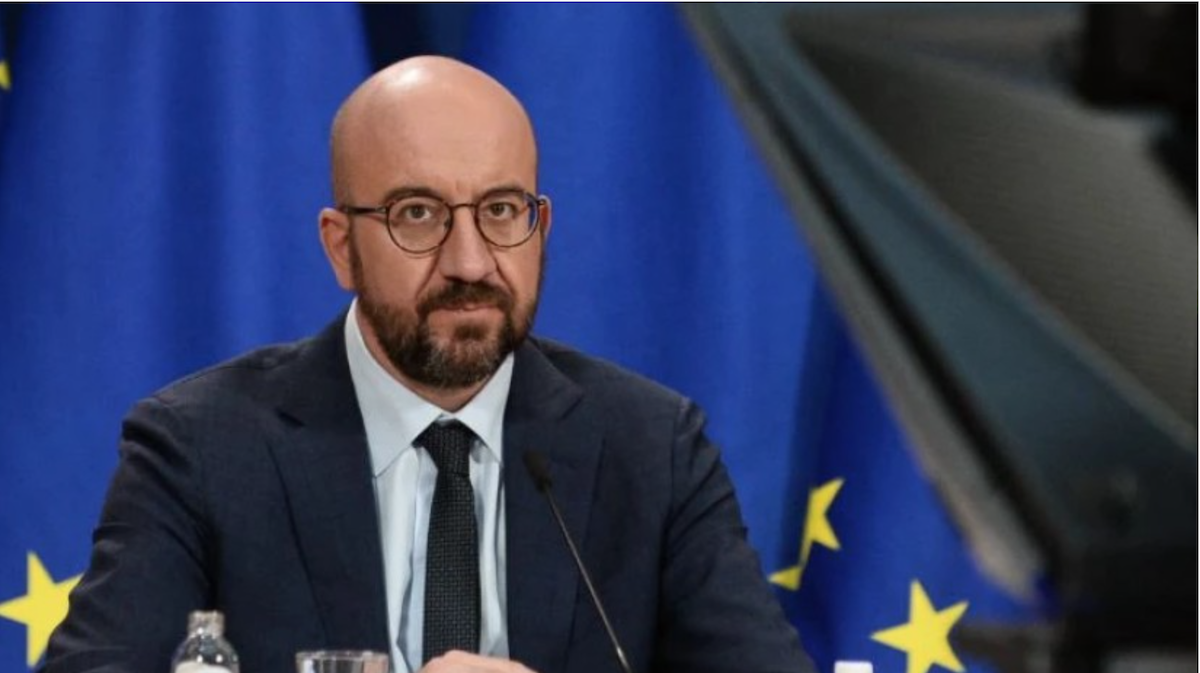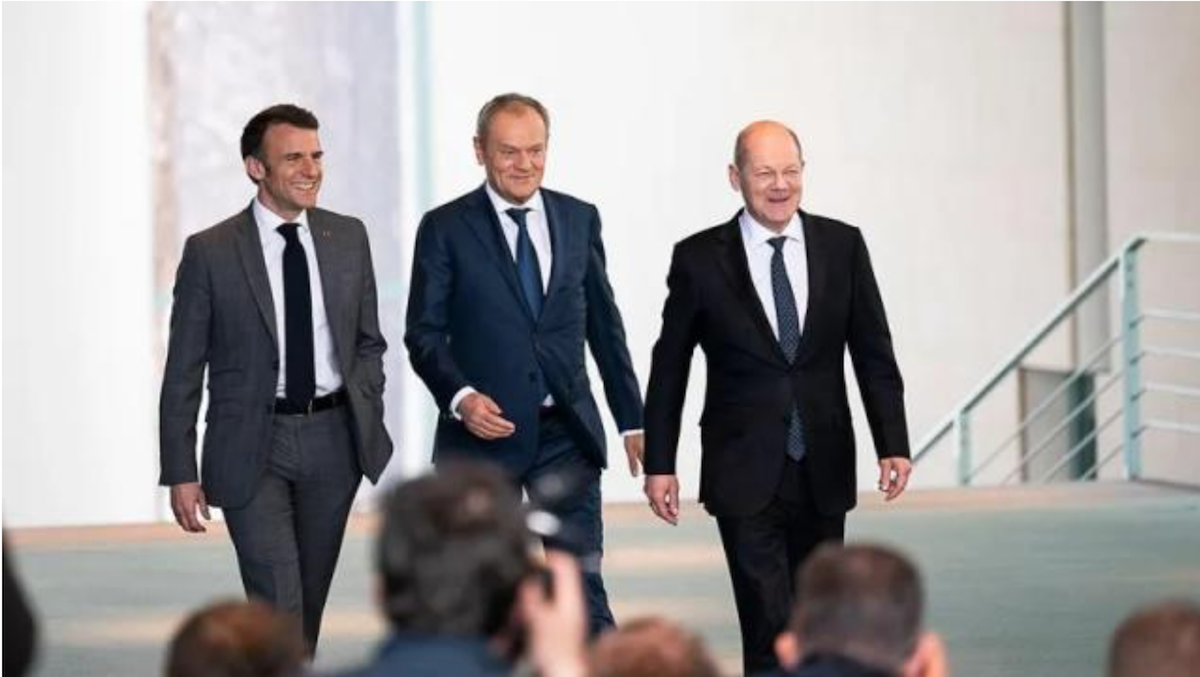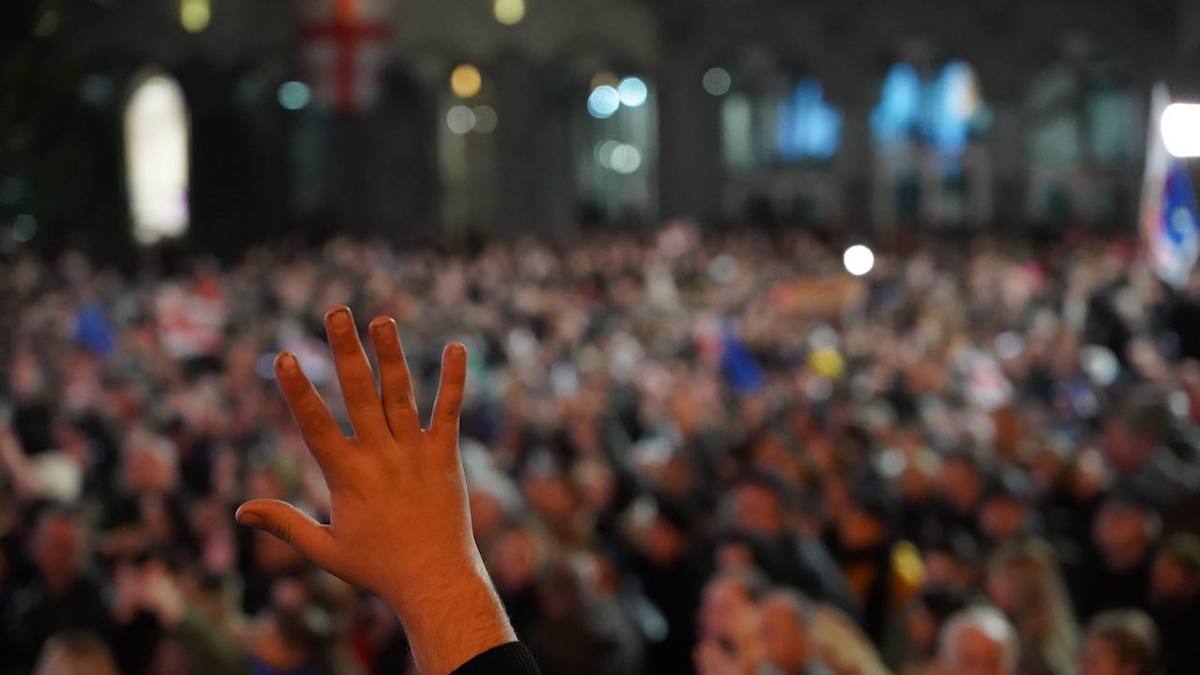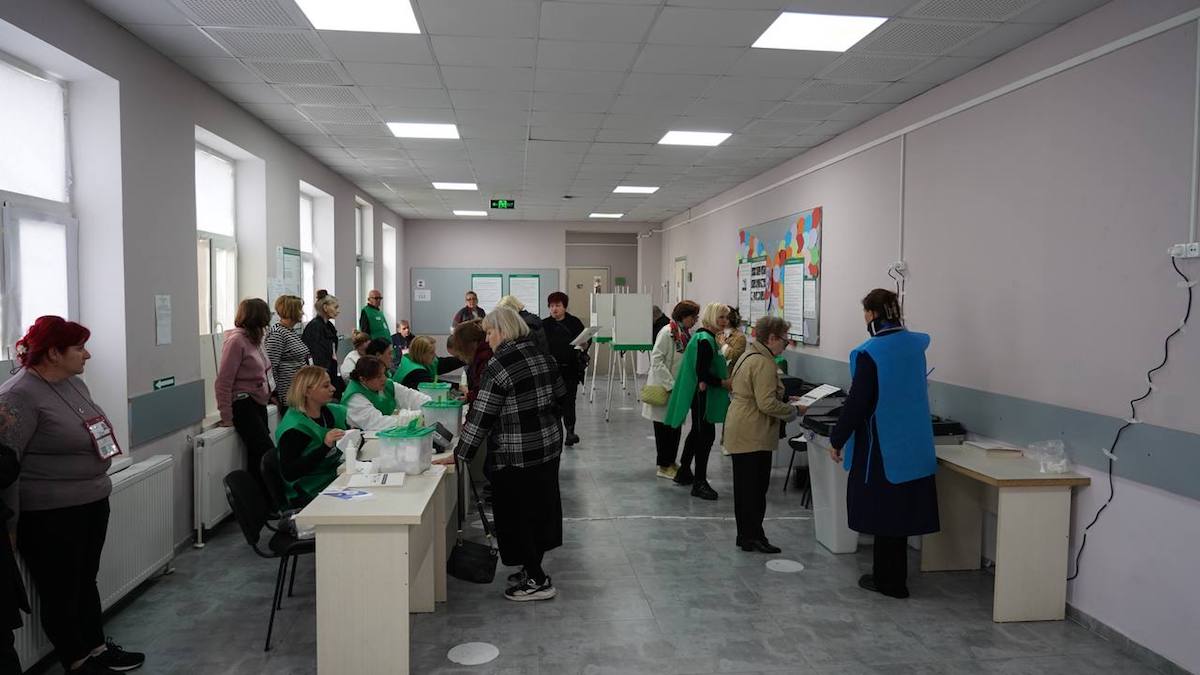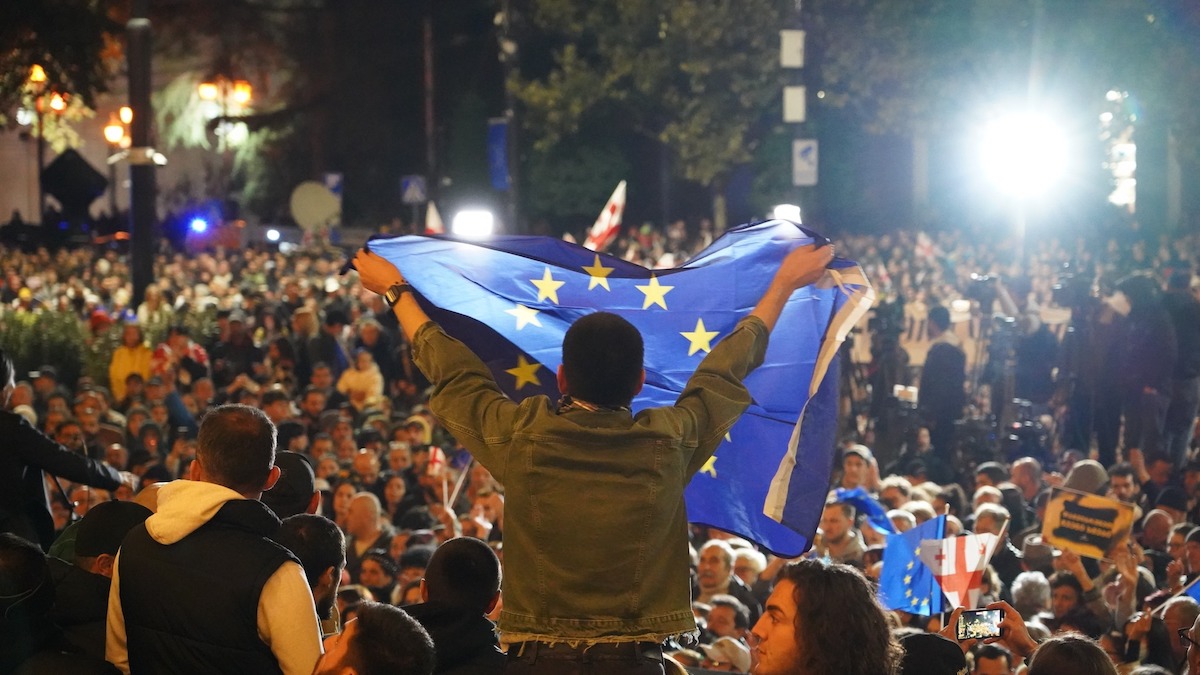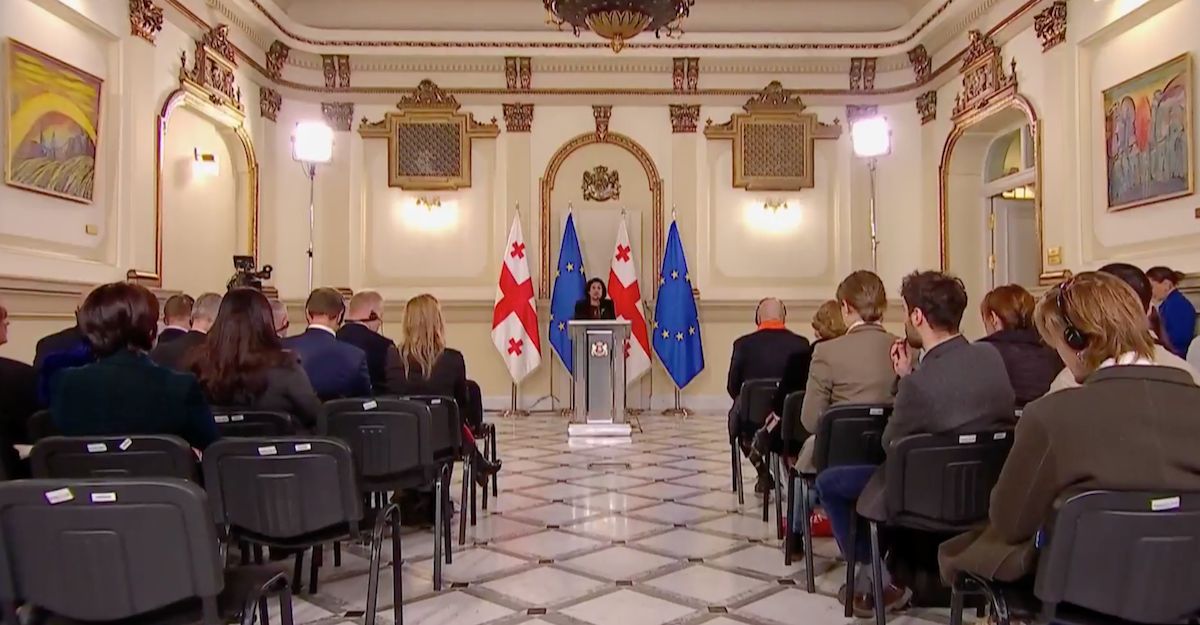
Georgian president meets EU representatives
The President of Georgia, Salome Zourabichvili, met with the chairpersons of the Foreign Affairs Committee from eight European Union countries. During a briefing at the Orbeliani Palace, the president stated that Georgia is entering a deep political crisis, and the delegation’s visit at this time serves as further confirmation of European support.
According to the president, the purpose of the visit by “friends from EU member states” to Georgia is to find a way out of the country’s crisis.
After the meeting with the Georgian president, the chair of the Bundestag’s Foreign Affairs Committee, Michael Roth, spoke about election violations and the importance of an independent investigation, noting that “as long as there is no clarity regarding the elections, the European Union cannot recognize them as legitimate.”
He added that if an independent investigation into allegations of fraud is not conducted, the question of imposing personal sanctions on those responsible for manipulation and voter intimidation will arise.
After the meeting with the president, the EU delegation will meet with opposition groups and non-governmental organizations. It is known that the main topics of discussion will be the rigged elections and the usurpation of power.
Representatives of the ruling party do not plan to meet with the EU delegation, and meetings with the government administration and parliamentary majority are not scheduled.
Delegation members:
Germany – Michael Roth
Finland – Jukka Kopra
Sweden – Erik Ottosson
France – Frédéric Petit
Lithuania – Žygimantas Pavilionis
Latvia – Ināra Mūrniece
Estonia – Marko Mihkelson
Poland – Michał Kamiński
What was said at Orbeliani Palace
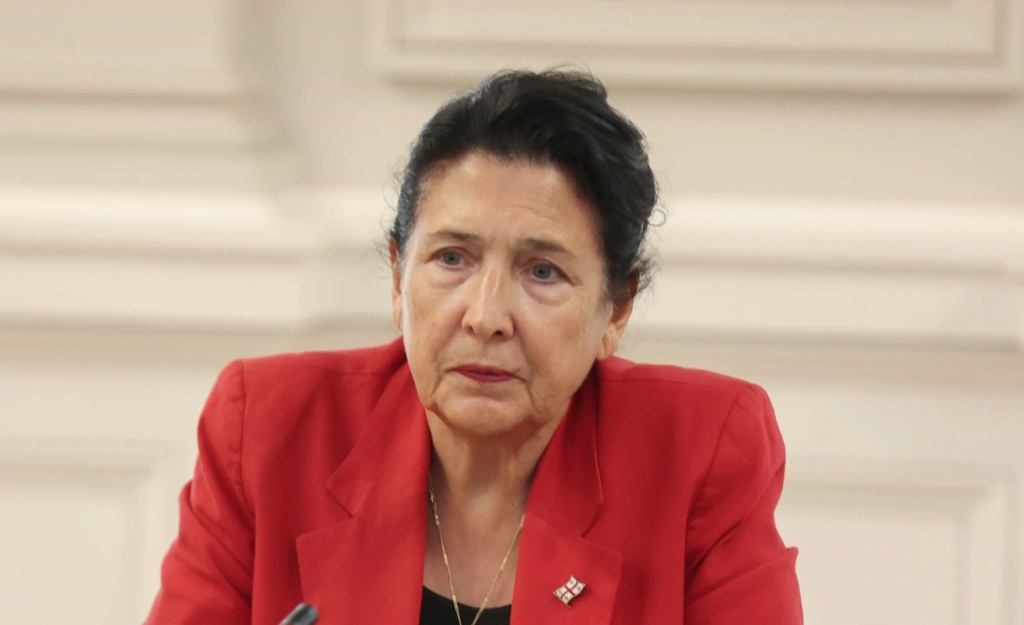
Salome Zourabichvili, President of Georgia: “Their visit here today, as Georgia enters a deep political crisis, is yet another sign of European support. Europe is not letting us go and still believes in Georgia, in the European identity of Georgia, in the European nature of the Georgian people, which has been demonstrated repeatedly over these 33 years—not just many times but every time European principles and hopes for a European future were called into question, the people of Georgia, Georgian society, took to the streets. Many people say they’ve spent all these 30 years on the streets—any deviation by the authorities from democratic principles has always sparked protests in the country.”
This is a country with a European, democratic society, but unfortunately, it lacks a democratic government. There is a single-party government that has taken control of nearly all institutions, the result of which we saw in the elections.
These are single-party controlled elections, single-party rigged elections. That is why we are entering a crisis. From the statements made by the head of the Central Election Commission, it’s clear what decision he will make—there will be no surprises; the crisis is evident. And our friends are here to help us find ways for Georgia to overcome this crisis and emerge from it. At some point, in a fair manner, we will return to new elections, so that Georgia may have a legitimate parliament, government, and, when the time comes, a new legitimate president.
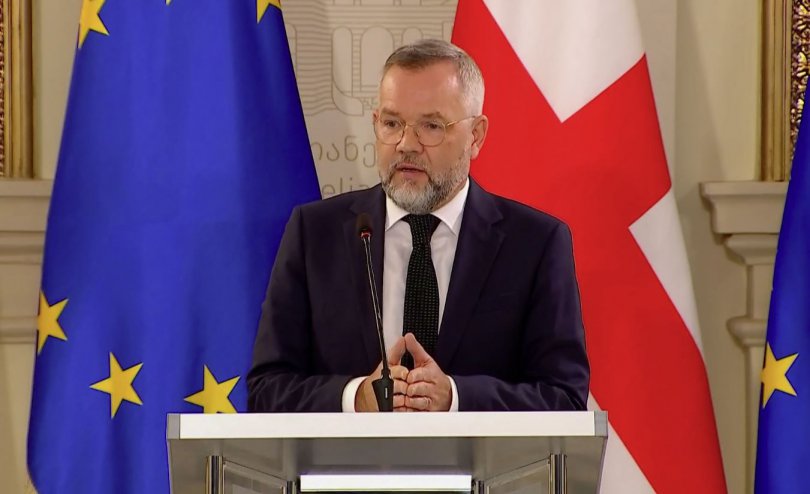
Michael Roth, Chair of the Bundestag Foreign Affairs Committee:
“We are here because we are deeply concerned about the recent elections and the Georgian government’s anti-democratic policies. The recent elections in Georgia were neither free nor fair. At most polling stations, the secrecy of voting was not ensured, and widespread bribery and voter intimidation occurred. Supporters of the ruling party have undermined the foundations of democracy, creating serious doubts about the legitimacy of the elections, as reported by the international observation mission.
We support the calls from the President of France, the Chancellor of Germany, and the Prime Minister of Poland to investigate these serious allegations. The European Council, OSCE, and other organizations must intervene.
‘Until the elections are clarified, the EU cannot recognize them as legitimate. If the allegations are not thoroughly investigated, we will call for individual sanctions against those responsible for manipulation and voter intimidation.’
Democracy and accountability must go hand in hand, and those who undermine these principles should be held accountable.
We must consider all tools, including the suspension of visa-free travel, which is not only a major achievement for you but also for us. However, the situation is serious, and we must use every tool available. We firmly support the Georgian people.”
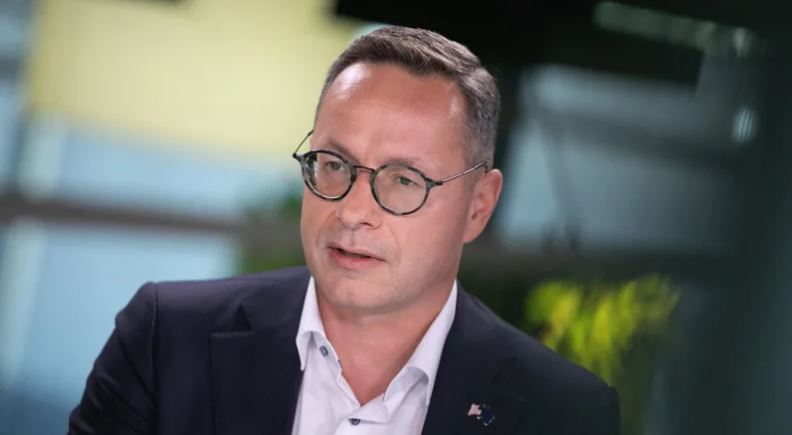
Jukka Kopra, Chair of the Finnish Foreign Affairs Committee: “Honest and free elections, based on our understanding of democracy, are sacrosanct. There cannot be a fully legitimate government or administration if they do not follow the path of free and fair elections.
We are monitoring the developments. I want to note that the most effective and impartial way to verify what happened in the Georgian elections in October is for the process to be conducted by an organization outside Georgia, as we see that the ruling party holds very strong positions within various institutions. To convince not only the Georgian population but also the rest of the world that the elections were free and fair, it is best if they proceed with international cooperation—for example, with neutral participation from the Council of Europe, OSCE, or other trusted organizations.”
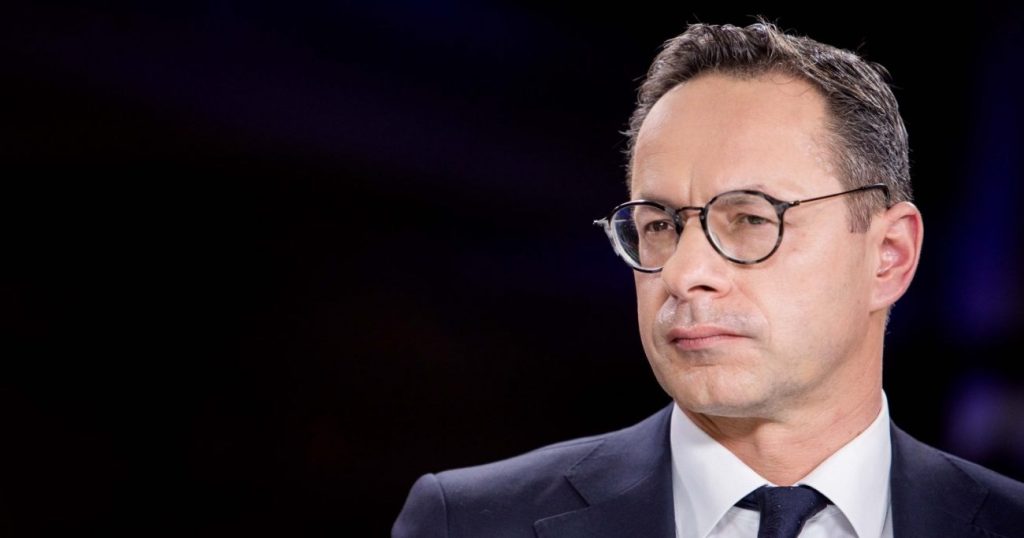
Žygimantas Pavilionis, Deputy Speaker of the Lithuanian Parliament, Chair of the Foreign Affairs Committee: “[Shalva Papuashvili’s statement] is very Soviet. I noticed this trend three or four years ago. The representatives of the ruling party ‘Georgian Dream’ stopped meeting with those who criticized the Georgian authorities. Over the past three years, I’ve visited Georgia many times but haven’t managed to meet with them—except for the Deputy Foreign Minister of Georgia. Refusing to meet with those who criticize you is a Soviet approach.
The Georgian government cannot pass the test. Negotiations on EU membership are an intergovernmental process. A single mistake is enough to halt it. ‘Georgian Dream’ is lying when it claims it can guarantee membership.”
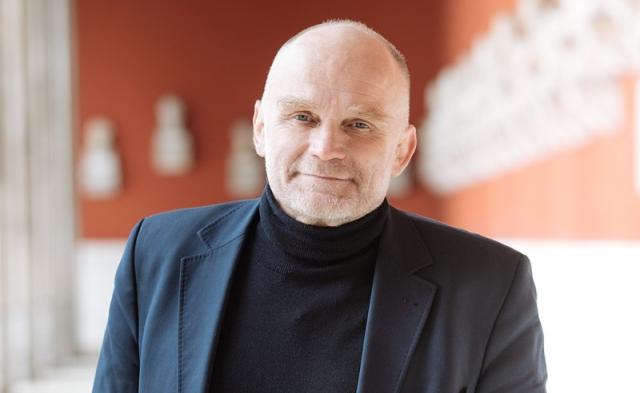
Frédéric Petit, Vice President of the European Affairs Committee of the French National Assembly: “We want to say that Europe is a family. The European Union is a tool for managing conflicts. Sometimes we cannot reach agreement; we have disagreements, but we work together. I am surprised when a parliamentarian, a member of parliament, says, ‘I will not meet with you because you disagree with me.’ This goes against democracy. The only place where there are no conflicts is the cemetery. I’m in no hurry to go there.
It surprises me when a parliamentarian says to me, ‘I won’t meet with you because you disagree with me. The only place without conflict is the cemetery.’”
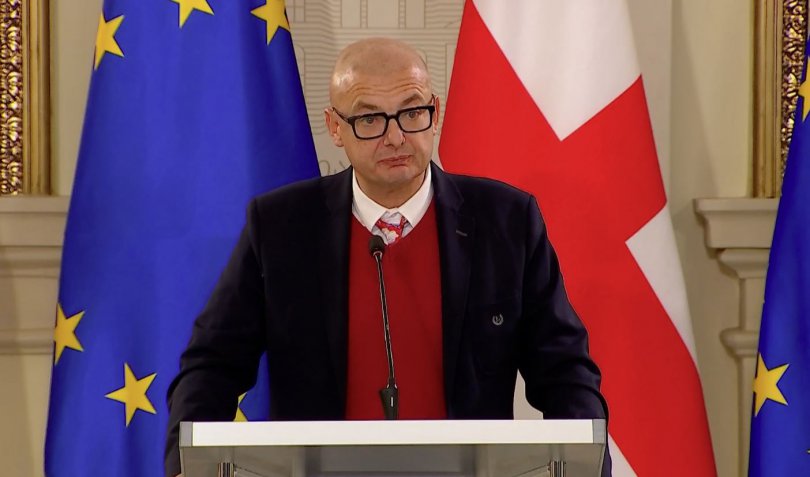
Michał Kamiński, Chair of the Foreign Affairs and European Union Committee of the Polish Parliament: “When Tbilisi was in danger, I was there with the late President Kaczyński. I organized that visit as Secretary of State. We came here when Tbilisi was under direct threat.”
I stood here in this city when it was under threat from Russia. And I am here again because Tbilisi is still under Russian threat.
This threat may not be expressed in tanks, although they are stationed a few kilometers away. The threat is expressed through Russian propaganda and Russian-style politics. The Georgian people, like the Polish, Ukrainian, Latvian, Lithuanian, and Estonian people, historically face two paths—to move towards Europe or fall into Russia’s hands.”
Georgian president meets EU representatives

